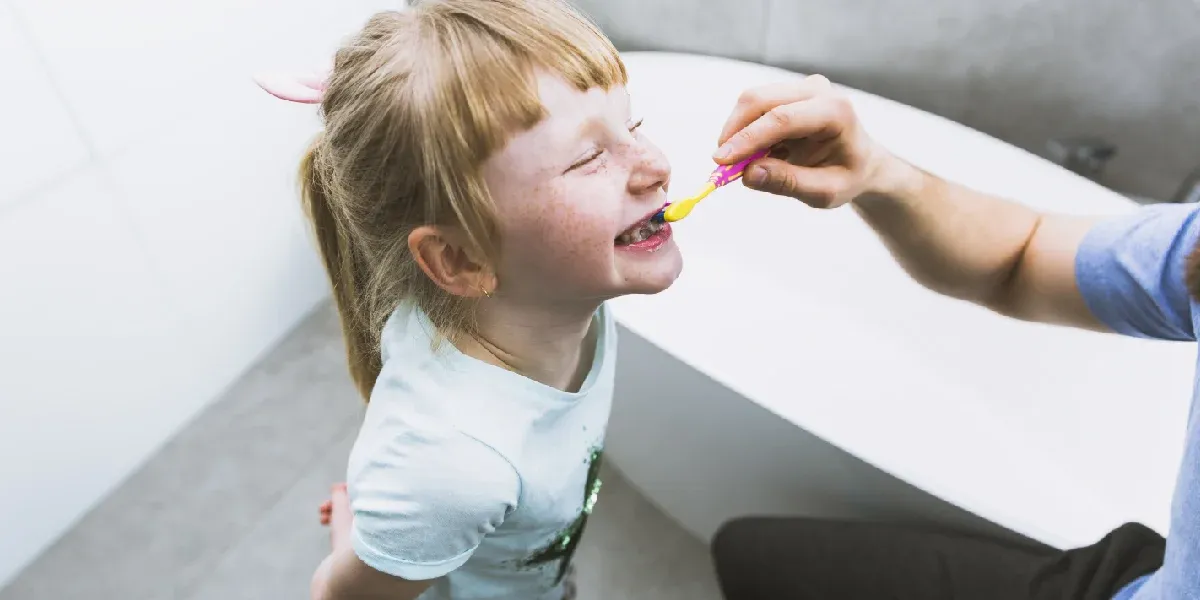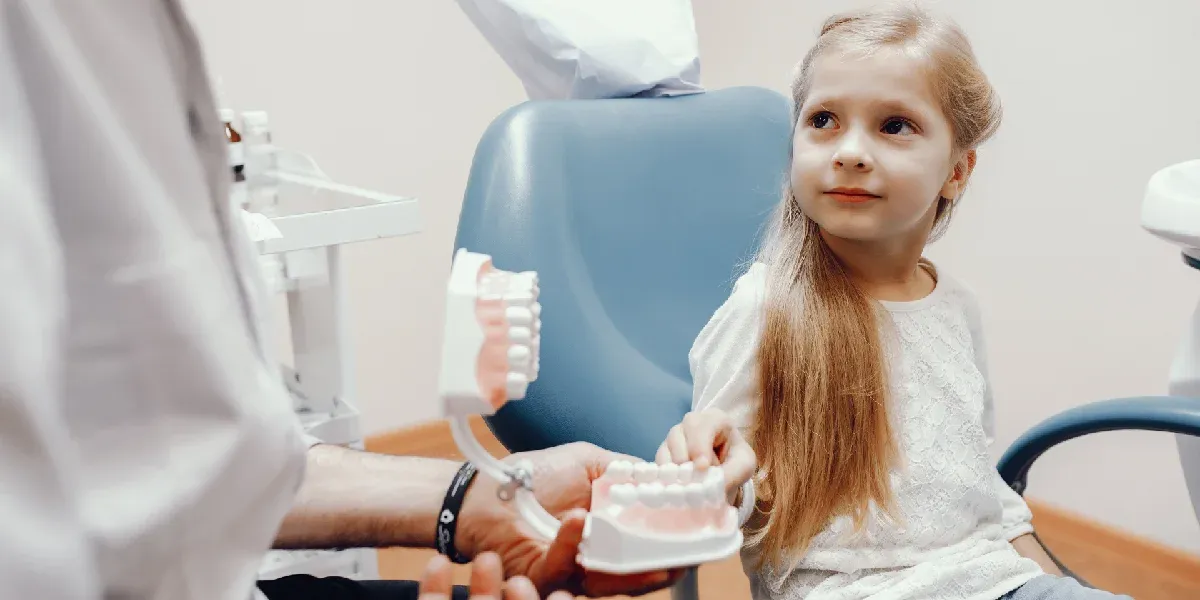
Cavities and common risk factors for Kids' tooth decay.
The outer layer of your tooth is enamel, which is very strong and durable. Cavities form when tooth enamel deteriorates. To put it simply, tooth decay results in a cavity (caries). There are various common risk factors for kids' tooth decay that every parent/guardian must be aware of. Untreated cavities can cause pain, infections, and difficulties eating, talking, playing, and learning.
Children with dental problems are more likely to miss class and perform poorly academically. Many parents struggle to determine how often their children require dental care. They intend to avoid tooth decay but aren't always sure how.
What causes tooth decay in kids?
Deterioration of teeth occurs due to various factors, the most common of which are bacteria. Carbohydrate-containing food particles (sugars and starches) left on teeth can lead to this condition. The mouth's resident bacteria convert some foods into acidic byproducts. Plaque, a sticky substance made of bacteria, food particles, acid from saliva, and saliva, adheres to the teeth. Simply put, cavities occur due to bacteria-producing acids that gradually dissolve tooth enamel.
Unfortunately, cavities can still occur despite meticulous oral hygiene. If your child complains of tooth pain, it could be a sign of a cavity that needs treatment, so don't delay making an appointment with the dentist.
Common risk factors for kids' tooth decay:
The mouths of all children are full of bacteria. That means any kid can develop cavities. However, the following may put your child at a greater risk for it:
- If you suffer from one of these disorders, there is a greater likelihood that your children may also develop dental caries and gum disease. If other family members, such as your elder brothers and sisters or your parents, have cavities.
- Consume constantly. Sugary snacks and drinks stimulate mouth germs that assault and wear down teeth. Since soda's acidity builds up over the day, it's like immersing your teeth in an acid bath.

- Infants' sugary drinks before bed might feed cavity-causing germs for hours, called baby bottle teeth decay. Toddlers with a sippy cup full of these drinks can be dangerous.
- Lack of sufficient brushing. The plaque will grow on your child's teeth very fast if they do not brush them shortly after eating and drinking, which can lead to the beginning stages of tooth decay.
- Fluoride helps restore mild tooth decay and prevent cavities: Fluoride in municipal water supply promotes dental health. It's in toothpaste and mouthwash.
- Lack of saliva, which usually helps keep teeth healthy by washing away food and plaque, is the root cause of dry mouth. Acids created by bacteria neutralize the substances contained in saliva.
How can I tell if my kid has cavities?
Detecting dental decay in its earliest stages can be challenging. Depending on how severe they are and where they are, cavities can cause various symptoms. In the early stages of a cavity, a person may feel nothing. When teeth show a dull, white strip along the gum line, it's a sign of tooth decay (the region around the gums and the base of the teeth). Also, the gums may be red and inflamed, and there may be brown stains on the teeth.
Teeth may become discolored or fractured if degeneration has progressed to that point. If the decay has spread and caused an infection, you may have bumps or pimples on your gums or develop puffiness around your gums and face.
Concluding Thoughts
You may be unaware that a cavity is developing in your tooth. Even if one's mouth does not feel uncomfortable, it is essential to visit the dentist regularly for examinations and cleanings. Depending on the advice given by your dentist, you should schedule routine dental examinations for your children every three months at least.
Maintaining healthy dietary habits can also help in the prevention of cavities. Sustaining good dental health requires moderation in sugary foods, encouragement of consistent brushing and flossing, and collaboration with a dentist. It requires you to consider the times and circumstances surrounding your child's meals.
Contact your kids' dentist in Stockton, Dr. Sajjad Rizvi, D.D.S. at Happy Kids Dental, to know about cavities and common risk factors for Kids' tooth decay.
Resource:
Tips to Prevent Tooth Decay in Kids
*This media/content or any other on this website does not prescribe, recommend, or prevent any treatment or procedure. Therefore, we highly recommend that you get the advice of a qualified dentist or other medical practitioners regarding your specific dental condition*
Subscribe To Our Newsletter
Get Updates And Learn From The Best


